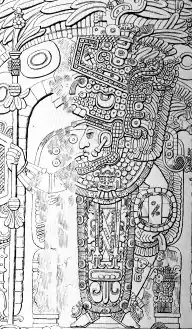734
Year 734 (DCCXXXIV) was a common year starting on Friday (link will display the full calendar) of the Julian calendar. The denomination 734 for this year has been used since the early medieval period, when the Anno Domini calendar era became the prevalent method in Europe for naming years.
| Millennium: | 1st millennium |
|---|---|
| Centuries: | |
| Decades: | |
| Years: |
| 734 by topic |
|---|
| Leaders |
|
| Categories |
|
| Gregorian calendar | 734 DCCXXXIV |
| Ab urbe condita | 1487 |
| Armenian calendar | 183 ԹՎ ՃՁԳ |
| Assyrian calendar | 5484 |
| Balinese saka calendar | 655–656 |
| Bengali calendar | 141 |
| Berber calendar | 1684 |
| Buddhist calendar | 1278 |
| Burmese calendar | 96 |
| Byzantine calendar | 6242–6243 |
| Chinese calendar | 癸酉年 (Water Rooster) 3430 or 3370 — to — 甲戌年 (Wood Dog) 3431 or 3371 |
| Coptic calendar | 450–451 |
| Discordian calendar | 1900 |
| Ethiopian calendar | 726–727 |
| Hebrew calendar | 4494–4495 |
| Hindu calendars | |
| - Vikram Samvat | 790–791 |
| - Shaka Samvat | 655–656 |
| - Kali Yuga | 3834–3835 |
| Holocene calendar | 10734 |
| Iranian calendar | 112–113 |
| Islamic calendar | 115–116 |
| Japanese calendar | Tenpyō 6 (天平6年) |
| Javanese calendar | 627–628 |
| Julian calendar | 734 DCCXXXIV |
| Korean calendar | 3067 |
| Minguo calendar | 1178 before ROC 民前1178年 |
| Nanakshahi calendar | −734 |
| Seleucid era | 1045/1046 AG |
| Thai solar calendar | 1276–1277 |
| Tibetan calendar | 阴水鸡年 (female Water-Rooster) 860 or 479 or −293 — to — 阳木狗年 (male Wood-Dog) 861 or 480 or −292 |

Yik'in Chan K'awiil of Tikal
Events
Europe
- Battle of the Boarn: The Franks under Charles Martel, mayor of the palace of Neustria and Austrasia, defeat the Frisians near the mouth of the River Boarn (now the Dutch province of Friesland). During the battle, the Frisian army is beaten and King Poppo is killed.[1] The Franks gain control of the Frisian lands west of the Lauwers (Netherlands), and begin plundering the pagan sanctuaries. The Frisians become Frankish vassals, apart from the tribes living in East Frisia in present day Germany.
- Umayyad conquest of Gaul: Muslim forces under Abd al-Malik ibn Katan al-Fihri, governor (wali) of Al-Andalus (modern Spain), enter Provence and raid the Rhône Valley. The cities of Avignon, Arles, and probably Marseille are handed over by Count Maurontus, who is in rebellion against Charles Martel.[2]
- 8 September: Frithubeorht is consecrated Bishop of Hexham.
Mesoamerica
- Jasaw Chan K'awiil I, ruler (ajaw) of Tikal (Guatemala), dies after a 52-year reign. He is succeeded by his son Yik'in Chan K'awiil, who becomes one of Tikal's most successful and expansionary rulers during the Late Classic period.
- During the Third Tikal-Calakmul War, K’ak Tiliw Chan Yopaat gives himself the title k’uhul ajaw, thus declaring Quiriguá’s independence from Copán.
Asia
- On March 23, 734 AD, a large earthquake happened in Qinzhou of Tang Dynasty, now the vicinity of Tianshui City, causing serious seismic disasters as "the earth ruptured and closed again, nearly all the houses damaged, about 4000 people dead, hills changed into valleys, and towns covered by landslip, and so on".[3]
Births
Deaths
References
- "Geschiedenis van het volk der Friezen". Boudicca.de. Archived from the original on June 8, 2009. Retrieved 2009-01-22.
- David Nicolle (2008). Poitiers AD 732, Charles Martel turns the Islamic people (p. 19). ISBN 978-184603-230-1
- Lei, Z.-S. (March 2007). "Textual research on the Tianshui M 7 earthquake in 734 AD and analysis of its causative structure". ResearchGate. Retrieved June 9, 2021.
This article is issued from Wikipedia. The text is licensed under Creative Commons - Attribution - Sharealike. Additional terms may apply for the media files.